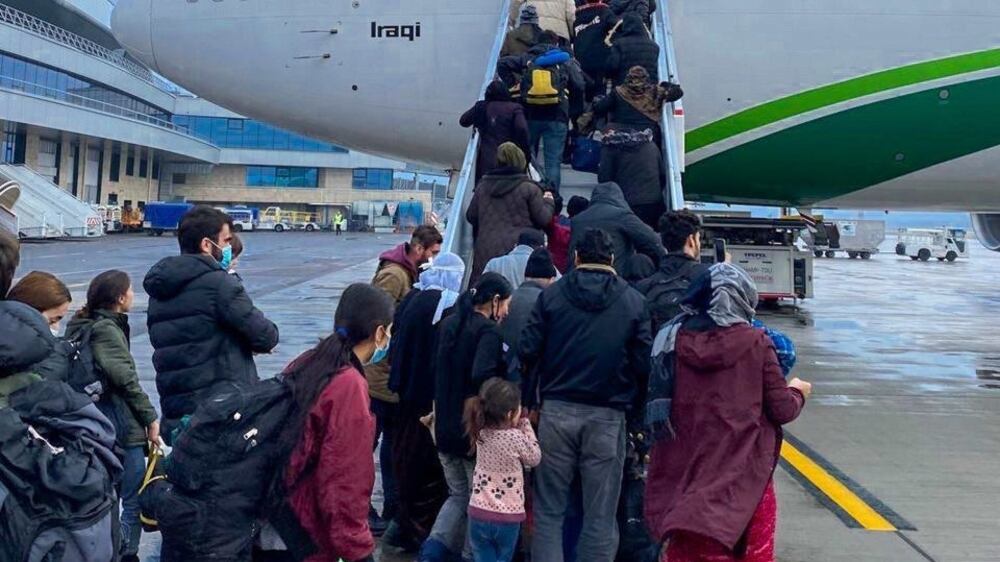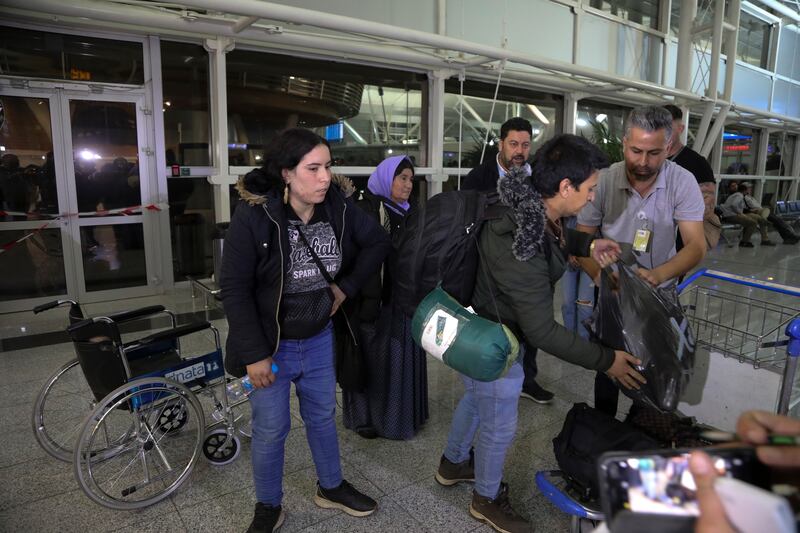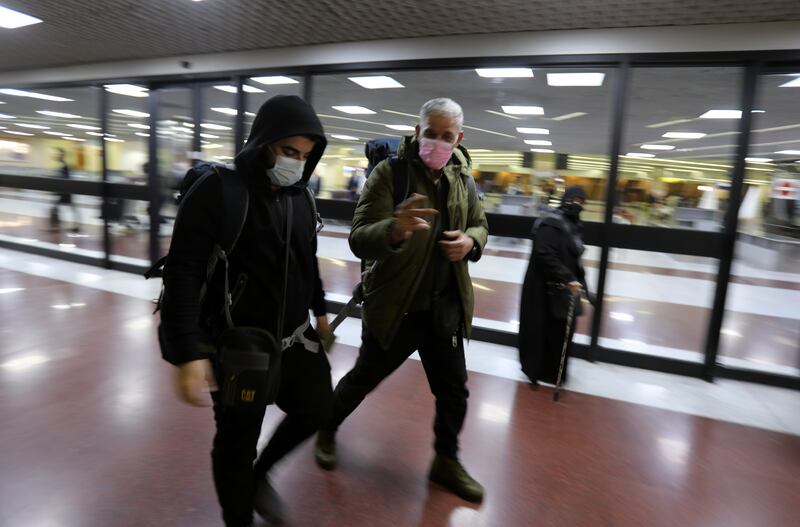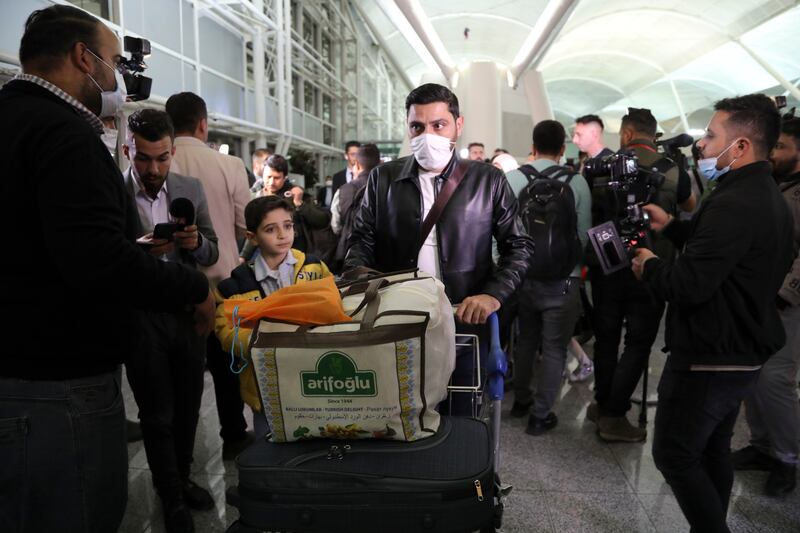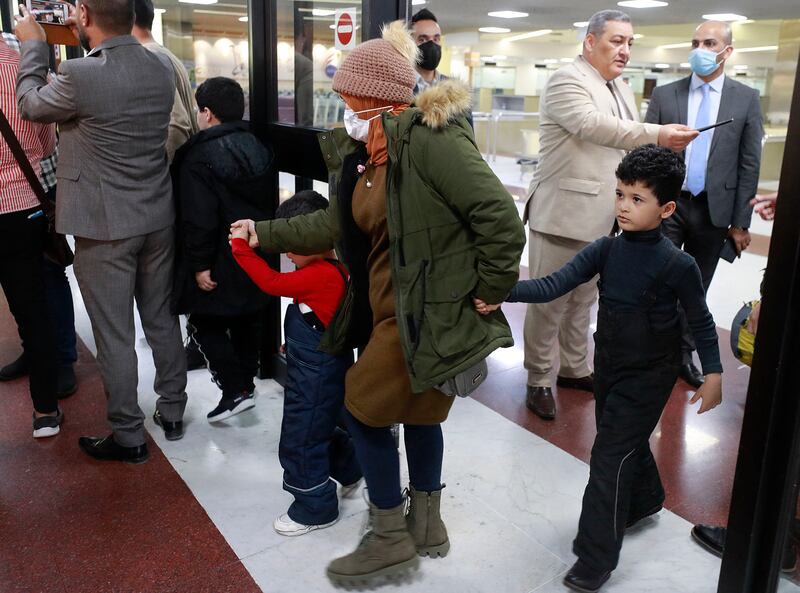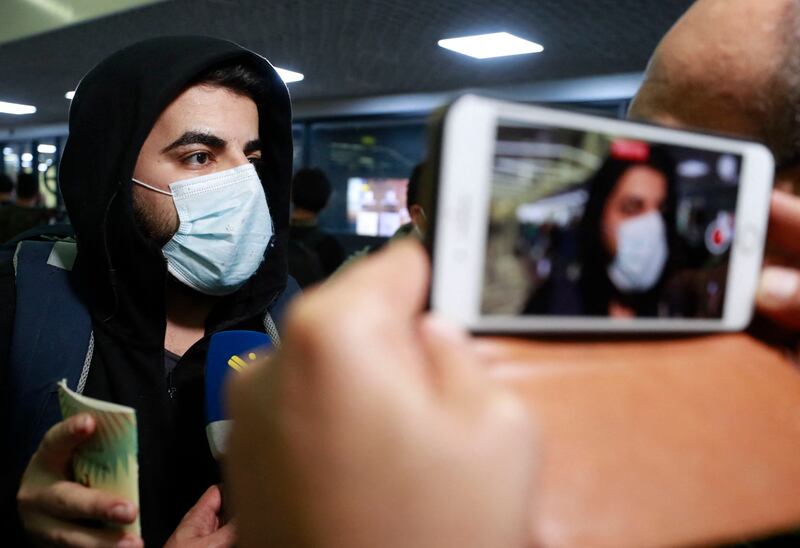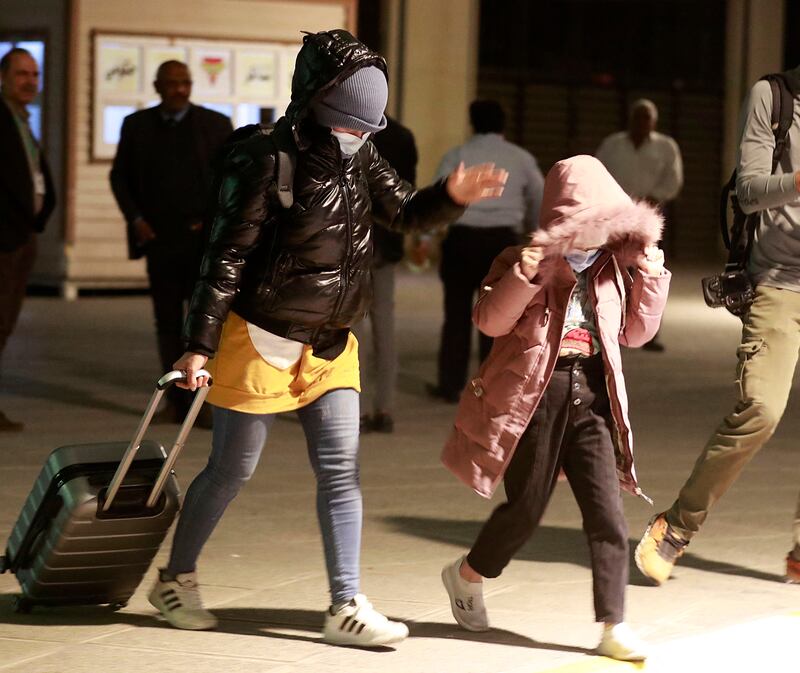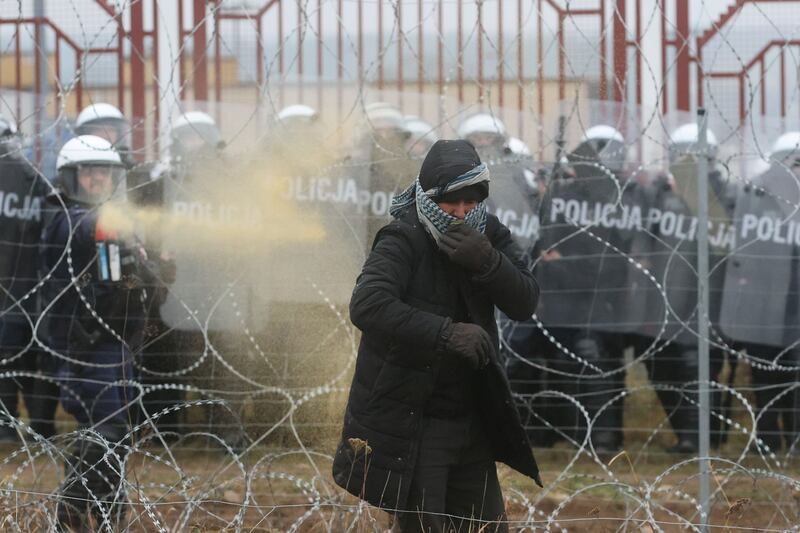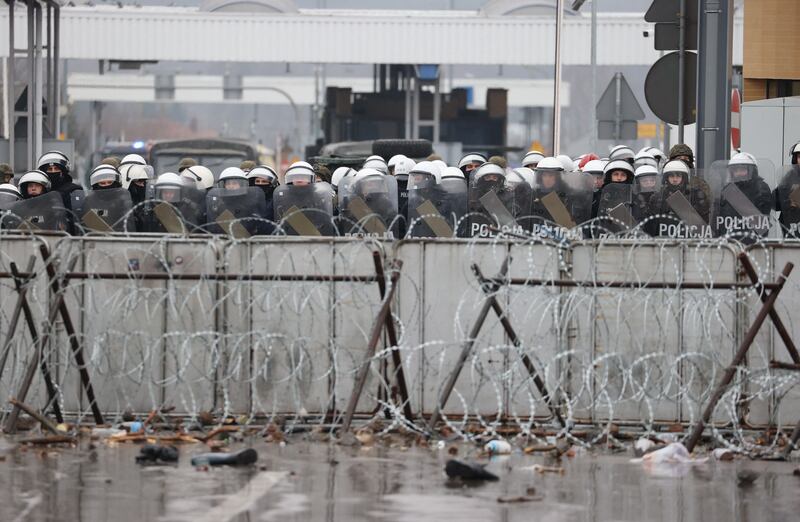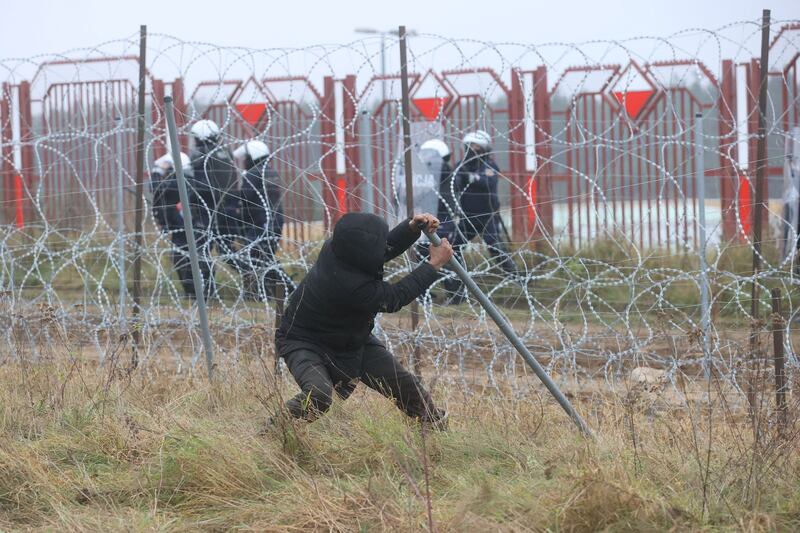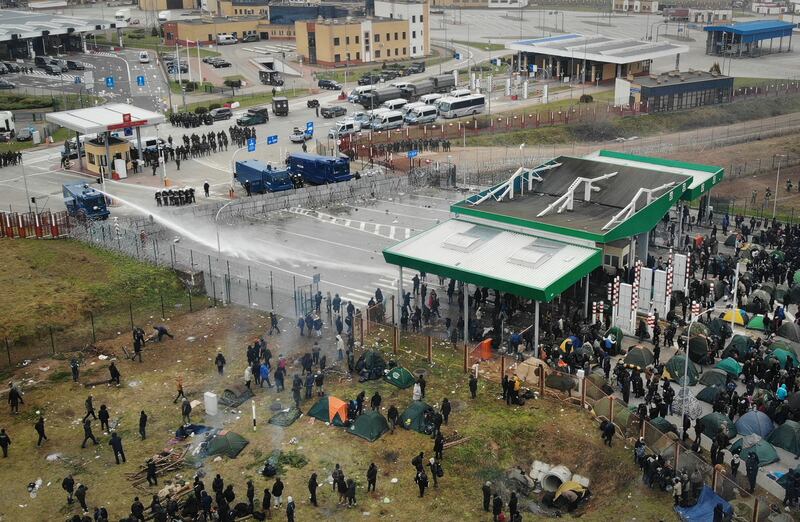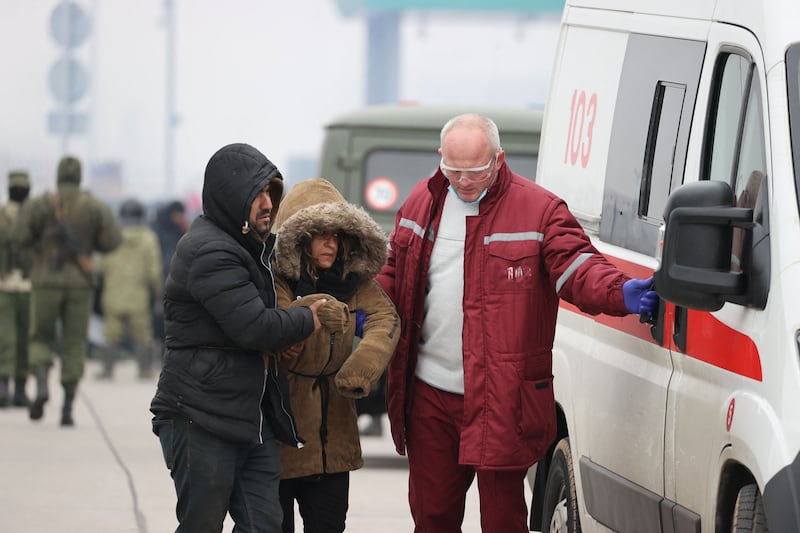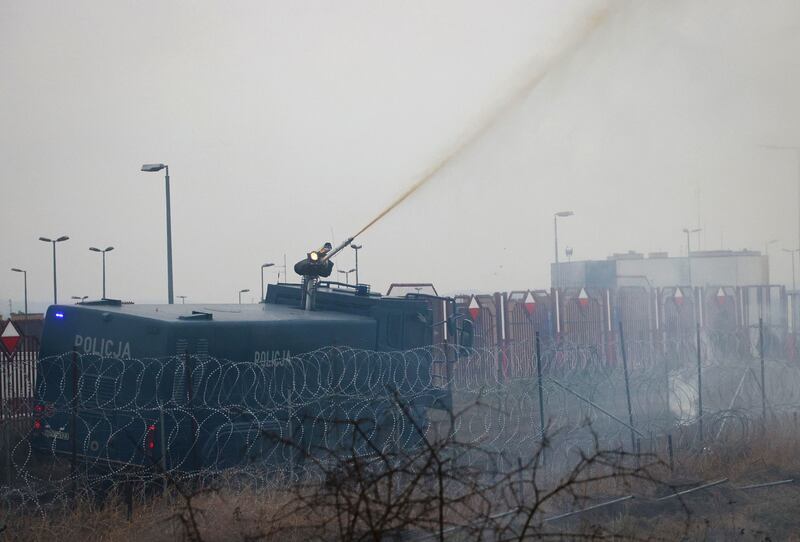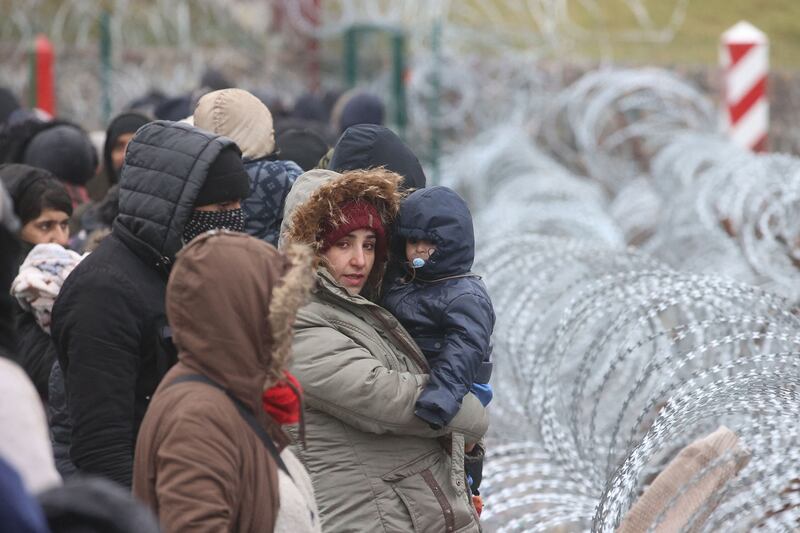Hundreds of Iraqi migrants were being flown home from Belarus on Thursday after failing to cross the border into the EU, a government spokesman told The National.
At least 430 Iraqi citizens were registered to return on a flight organised by the Iraqi government, Foreign Ministry spokesman Ahmed Al Sahaf said.
The Iraqi Airways plane was scheduled to land first in the city of Erbil, capital of the northern Kurdish region, before heading to Baghdad, he said.
“The number of migrants willing to return is increasing,” Mr Al Sahaf said. “Our diplomats in Belarus are still receiving requests from other migrants to voluntarily return to Iraq.”
On Thursday night, at least 30 migrants landed in Baghdad while the rest were set down in Erbil.
“It was terrible,” Ali Ahmed Jameel, 23, described his journey to The National as he emerged from the airport.
The construction worker paid $3,000 to a travel agency in Baghdad for the tickets and accommodation. He left Baghdad on November 3 for Minsk with 10 of his friends. Five of them returned.
“Life is unbearable here and that I needed a new chance to live a better life,” said Mr Jameel, a Baghdad resident.
A day after their arrival in Belarus, they went to the borders with Poland and kept walking for days in the forests.
“Unfortunately we couldn’t make it," Mr Jameel said, wearing a heavy winter coat and puffing on a cigarette. "It was impossible forus to continue.
"Both Polish and Belarusian troops were beating us and sometimes firing at us."
His friend, Murtadha, said he would try again.
“I will do it again,” he said. “Whatever they do we will reach Europe next time."
Others migrant described the journey as dangerous.
“It was freezing to the extent that you can’t move your fingers,” said Mohammed, 30. “There was no food. The water was dirty.
“The Belarusian troops helped us at first with removing the barbed wire at the borders, but the Polish beat us and retreated.
“Once inside the Belarusian territory, we were beaten again by their security forces. It was the worst experience I ever had in my life.”
Another said he lost hope when stuck inside the forests.
“While there I had two choices,” he said as he held a temporary Iraqi passport given by authorities. “Either die slowly or save my life and return to Iraq, so I returned.”
The exact number of Iraqis stuck in the Belarusian capital, Minsk, or at its border with EU member Poland is not certain, but diplomats were able to register about 571 Iraqis stranded in eight camps on the border, Mr Al Sahaf told the state-run TV on Tuesday.
“They are facing harsh weather and suffering from the lack of food and other supplies,” he said. “The majority of them are elderly, women and children.”
Iraqis are part of a growing migration crisis on the EU’s doorstep, with thousands of desperate migrants, mainly from Syria and Afghanistan, fleeing chaos and conflict in their homelands and seeking a new life in Europe.
The migrants are seeking to take advantage of a row between Belarus and the EU.
The EU imposed sanctions on Minsk after a disputed election last year in which Alexander Lukashenko was re-elected president. In response, Minsk this year eased restrictions at its border to allow migrants to enter Europe.
The EU has accused Belarus of orchestrating the movement of migrants in retaliation for the sanctions, an accusation Minsk has denied.
Under pressure from Brussels, Iraq suspended Minsk-bound flights in August and has repatriated more than 500 Iraqis so far. But migrants have been taking flights from other countries, including Turkey and Qatar.
Belarus on Thursday offered to send home 5,000 migrants if the EU agreed to take in 2,000, the president's spokeswoman was quoted as saying by the state Belta news agency.
Natalia Eismont said Mr Lukashenko had discussed the proposal with German Chancellor Angela Merkel. She said Mrs Merkel had agreed to discuss it with the EU.
“The European Union creates a humanitarian corridor for the 2,000 refugees who are in the camp," Ms Eismont said.
"We undertake to facilitate (as far as possible and if they wish) the remaining 5,000 to return to their homeland.”
Mrs Merkel spoke to Mr Lukashenko for the second time this week on Wednesday. Her spokesman said she stressed the need to let the UN and European Commission provide aid to migrants.
It was not clear whether the Belarusian proposal will be acceptable to the EU, especially as the return of 5,000 of the migrants was hedged with conditions.
The European Commission said earlier there was no question of any negotiation with Mr Lukashenko.
